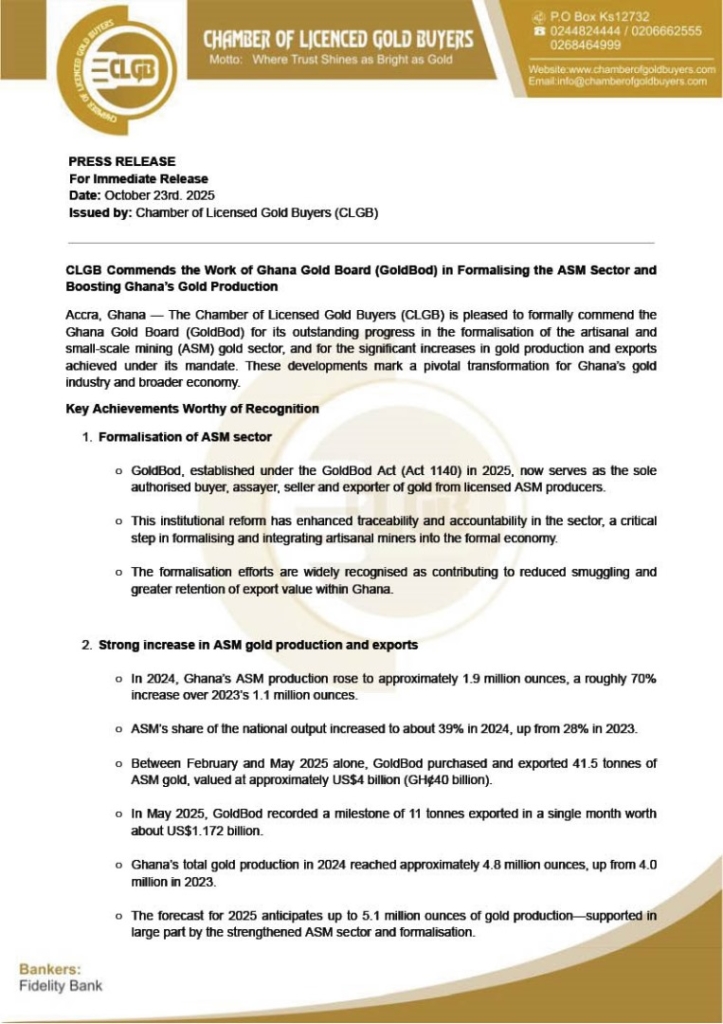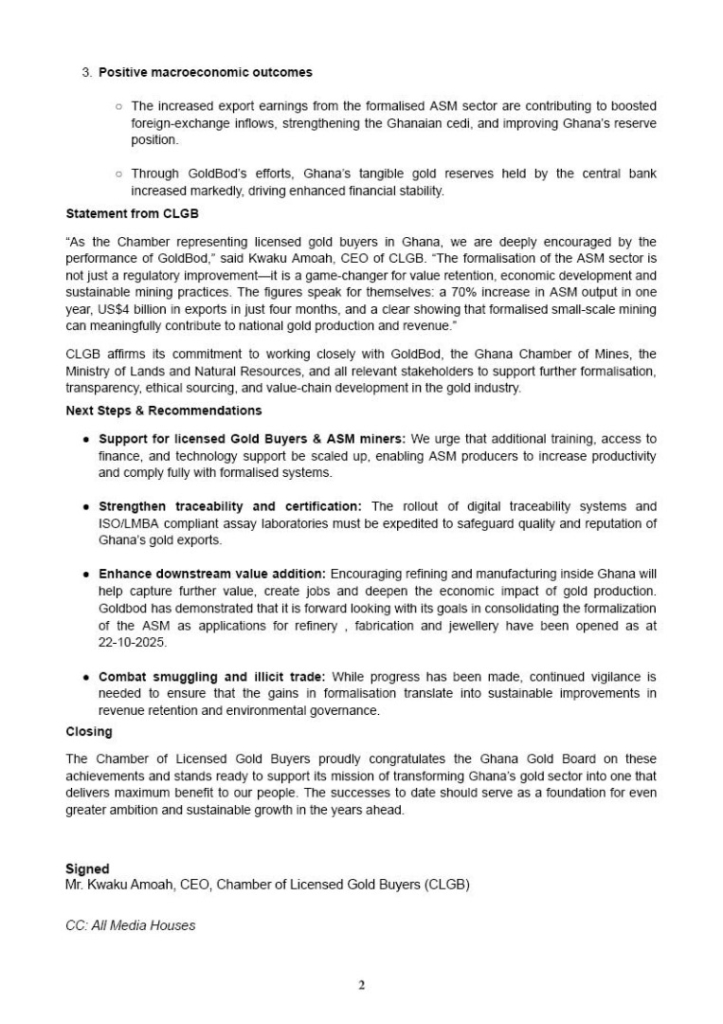
The Chamber of Licensed Gold Buyers (CLGB) has lauded the Ghana Gold Board (GoldBod) for what it says has been a remarkable progress in formalising the artisanal and small-scale mining (ASM) sector, and significantly increasing Ghana’s gold production and exports.
In a statement issued in Accra, the CLGB described GoldBod’s work as a pivotal transformation for the gold industry, contributing to transparency, traceability, and economic stability.
The Chamber said the institutional reforms have reduced smuggling, enhanced accountability, and promoted the integration of artisanal miners into the formal economy.
According to the CLGB, GoldBod’s establishment under the GoldBod Act (Act 1140) in 2025 as the sole authorised buyer, assayer, seller, and exporter of gold from licensed ASM producers has been instrumental in streamlining the sector.
It said in 2024, Ghana’s ASM production increased to approximately 1.9 million ounces, a 70 per cent jump from 1.1 million ounces in 2023. ASM’s share of national gold output also rose to 39 per cent in 2024, up from 28 per cent the previous year.
Between February and May 2025, GoldBod purchased and exported 41.5 tonnes of ASM gold, valued at about US$4 billion (GH₵40 billion). In May alone, exports hit a milestone of 11 tonnes, worth US$1.172 billion.
Overall, Ghana’s total gold production in 2024 reached 4.8 million ounces, up from 4.0 million ounces in 2023, with projections for 2025 estimated at 5.1 million ounces, driven largely by the formalised ASM sector.

Macroeconomic Benefits
The Chamber noted that increased export earnings from the formalised ASM sector have bolstered foreign exchange inflows, strengthened the Ghanaian cedi, and improved national reserves. Ghana’s tangible gold reserves held by the central bank have also risen significantly, enhancing financial stability.
Mr Kwaku Amoah, CEO of the CLGB, commended GoldBod’s leadership, saying, “The formalisation of the ASM sector is not just a regulatory improvement—it is a game-changer for value retention, economic development, and sustainable mining. The figures speak for themselves: a 70 per cent increase in ASM output in one year, US$4 billion in exports in just four months, and clear evidence that formalised small-scale mining can meaningfully contribute to national production and revenue.”
The CLGB reaffirmed its commitment to collaborate with GoldBod, the Ghana Chamber of Mines, the Ministry of Lands and Natural Resources, and other stakeholders to advance transparency, ethical sourcing, and value-chain development in the gold industry.
The Chamber urged continued support for licensed gold buyers and ASM miners through training, finance, and technology to enhance productivity under formalised systems. It also called for accelerated rollout of digital traceability systems and ISO/LBMA-compliant assay laboratories to safeguard the quality and reputation of Ghana’s gold exports.
Additionally, the CLGB encouraged downstream value addition, such as local refining, fabrication, and jewellery production, to create jobs and deepen the economic impact of gold mining.
The Chamber also stressed the need for vigilance to combat smuggling and illicit trade, ensuring that formalisation gains translate into long-term environmental and revenue benefits.
The CLGB congratulated the Ghana Gold Board for its achievements and pledged continued support for efforts aimed at transforming Ghana’s gold sector into a more transparent, value-driven, and globally competitive industry.
“The successes to date should serve as a foundation for even greater ambition and sustainable growth in the years ahead,” the statement said.

